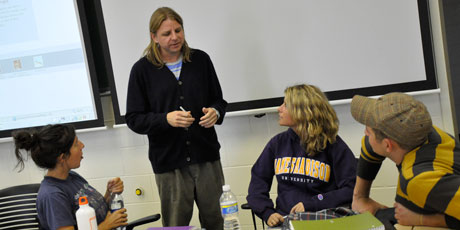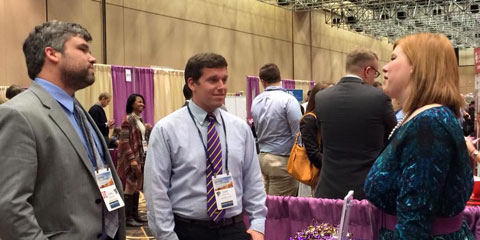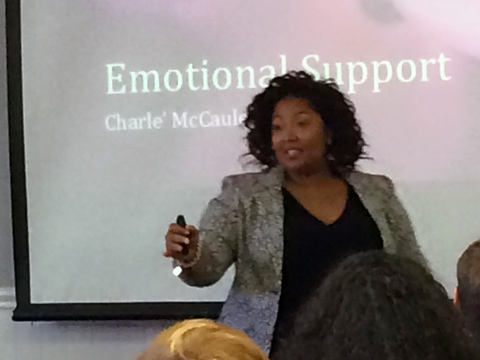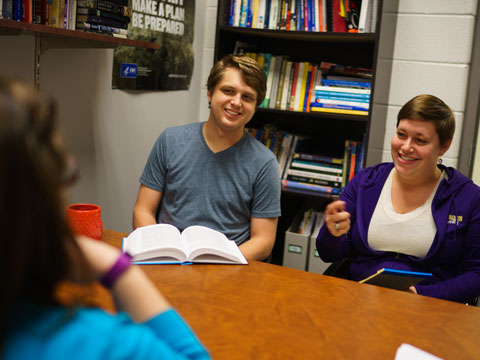Our program offers the benefits of both a general communication master’s program and a specialized program. In addition to a strong foundation in Communication Studies, this program offers concentrations in environmental, health, and strategic communication.
The degree requirements are listed in the catalog and linked below.
Health Communication
Graduate students interested in specializing in advocacy in the context of health communication will complete course work relevant across a wide range of health contexts.
Students graduating with a concentration in Health Communication will be prepared to work in a variety of nonprofit, government, and corporate settings constructing and evaluating health-related messages and campaigns, educating audiences using culturally appropriate messages designed to reach diverse groups, and advocating for patients and clients in a variety of health care contexts.
Environmental Communication
Graduate students interested in specializing in environmental communication will complete course work focusing on the multifaceted nature of environmental advocacy, key forums through which competing local to international interests are identified, contested, and managed, as well as how various levels of risk are framed, challenged, and negotiated.
Students graduating with a concentration in Environmental Communication will be prepared to work in a variety of nonprofit, government and corporate settings constructing and evaluating environmental campaigns, facilitating organizational and group decision making about issues related to environmental practices, communicate effectively with varied stakeholders with conflicting interests, and educate and motivate diverse audiences regarding environmental interests.
Strategic Communication
Graduate students interested in specializing in strategic communication will complete course work focused on the research-driven, analytical approach utilized by contemporary advocates to address communication challenges and opportunities in the public and private sectors.
Students with a concentration in Strategic Communication will be prepared to work in a variety of corporate, governmental, and nonprofit settings, constructing and evaluating communication campaigns, facilitating organizational and group decision making, engaging effectively with interested stakeholders, and educating and motivating diverse audiences.

Our faculty members
-
Are dedicated, experienced teachers,
-
Are award-winning leaders in their field, and
-
Bring professional experience in communication and advocacy to the classroom.

Our typical student
-
Wants to make a difference in the world through advocacy,
-
Is excited about research,
- Is interested in attending academic conferences through our travel grant,
-
Wants a successful career in non-profits, strategic communication, NGOs, health or environmental advocacy,
-
Or may want to pursue a Ph.D. after their Master's.




